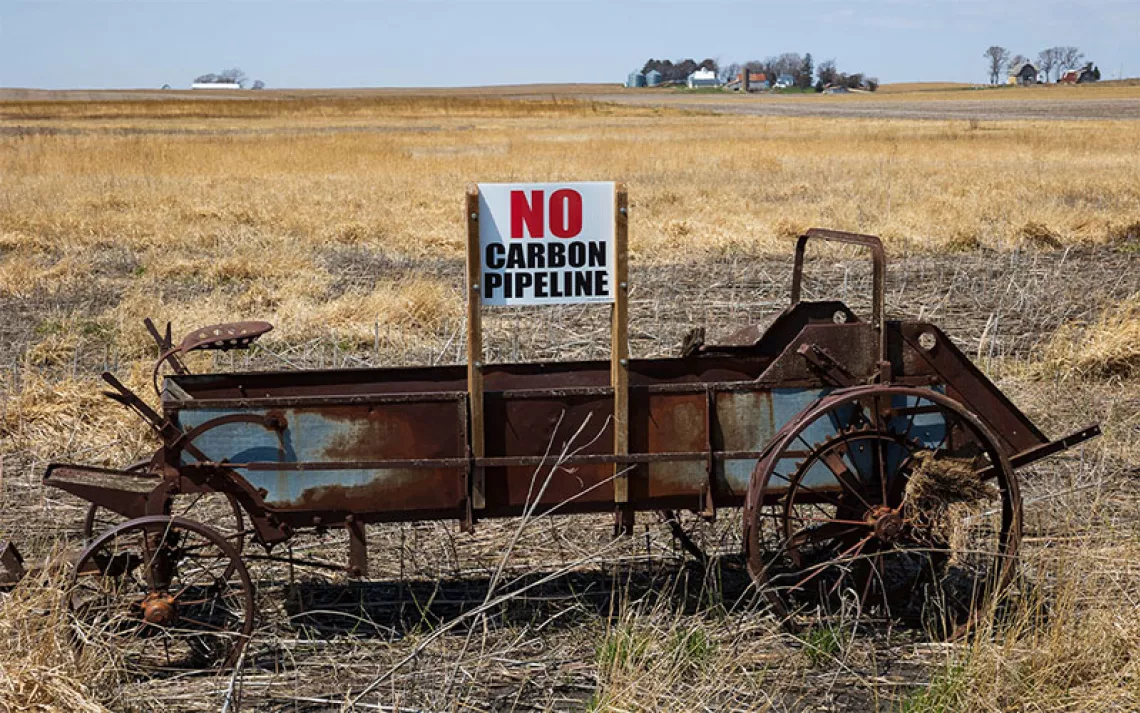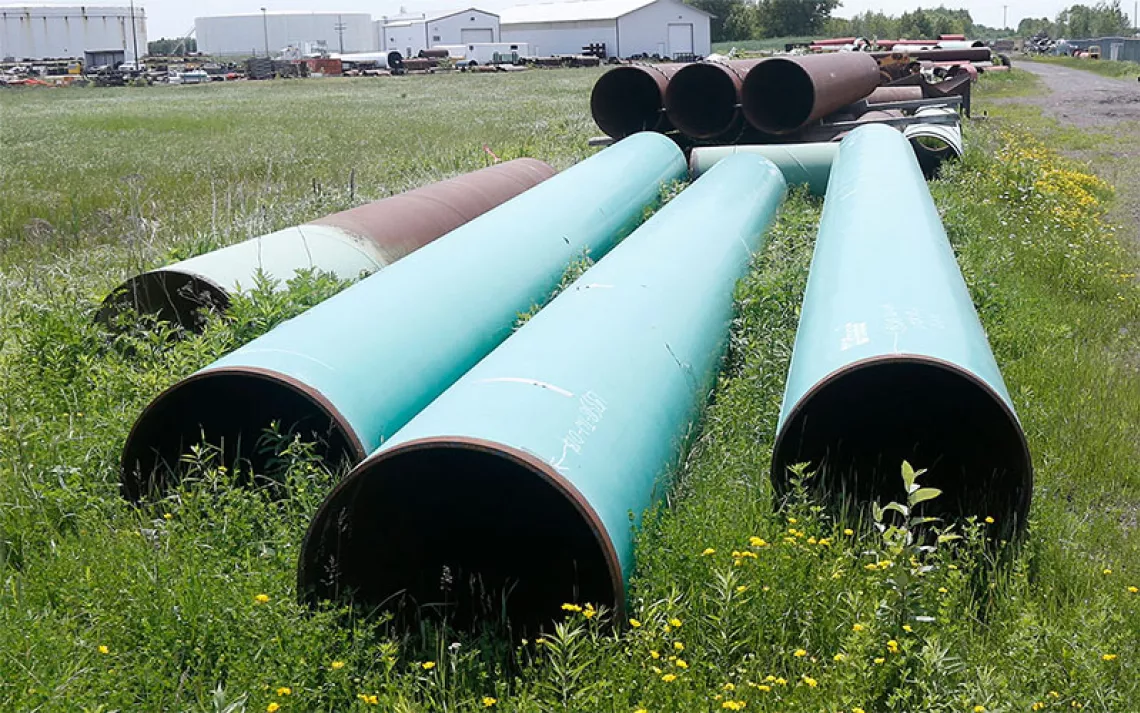Trees Score a Victory Against the Atlantic Coast Pipeline
Controversial natural gas pipeline gets a temporary axe

Photo by Zdravko Troha/iStock
The Federal Energy Regulatory Commission has denied a request by Dominion Energy, the lead builder of the Atlantic Coast Pipeline, for more time to cut trees on the pipeline route this spring. The company had to stop cutting by the end of March in order to protect migratory birds and endangered bats in the path of the project, which will run from West Virginia to terminals in Virginia and North Carolina.
The limits were a condition of FERC’s approval of the project, and commissioners told the company they weren’t ready to bend.
“After a thorough review of your request, we find that it would not offer an equal or greater level of protection,” the decision states.
Opponents of the controversial natural gas pipeline from the Appalachian Mountains to the Atlantic coast celebrated a win that will hold up the project. Jamshid Bakhtiari, the Virginia field coordinator for the Chesapeake Climate Action Network, said the FERC decision will delay but not stop the project.
“It’s a good thing,” Bakhtiari said. “We should shoot to have more things like this happen in terms of delaying the pipeline. But it is not a final nail, by any means, in the coffin.”
Bakhtiari’s group is part of a broad coalition of organizations, including the Sierra Club, that has mobilized to stop the Atlantic Coast Pipeline. The denial means tree clearing has to halt until at least September, and at some points on the route, until mid-November. “They say if you give someone an inch, they'll take a mile,” Kirk Bowers, the pipelines program coordinator for the Virginia chapter of the Sierra Club, said. “From what I've seen, if you give Duke and Dominion the chance to cut down trees, kill wildlife, and seize private property, they’ll want to do even more.”
The pipeline is one of two conduits for fracked gas, up to 42 inches in diameter, that developers want to build through the central Appalachians, across terrain that critics say is both scenic and poorly suited to heavy infrastructure.
Much of the landscape is made up of karst—unstable formations where bedrock has been eaten away by groundwater, leaving it prone to sinkholes and vulnerable to pollution. The right-of-way for the line would be up to 125-feet wide, stretching from northern West Virginia to west of Wilmington, North Carolina, with a 70-mile spur to the Virginia coast near Norfolk.
But while the pipeline has generated intense opposition along the 600-mile route, the builders have been racking up regulatory approvals in the three states it would traverse. It has all the federal authorization it needs, while Virginia and North Carolina officials have so far certified that the project will meet state environmental standards.
Bakhtiari said the Virginia Department of Environmental Quality still needs to produce its analysis of the project’s stormwater, sediment control, and karst impacts. Opponents are urging Governor Ralph Northam to put that report out for public comment before signing off on the findings.
But the axes started swinging in January, three months after FERC stamped its approval on the project. It ran behind schedule, so builders asked the commission to extend the deadline to finish cutting until May 15.
That would have cut into the time when birds in the Appalachian forests would be nesting for the spring. The restrictions also were carved out to protect two species of bats that live in the area: the endangered Indiana bat, which roosts under the loose bark of dead or dying trees in the summer, and the threatened northern long-eared bat, which may roost in caves and mines.
“ACP wants to continue destroying acres of trees for one reason, to save money,” the Chesapeake Bay Foundation wrote in opposition to an extension. “That is not an acceptable reason to harm the thousands of bats and birds migrating through, foraging in, and nesting in or near the pipeline path and access roads.”
In its request, Dominion said it could make up for the extended cutting period by watching more closely for birds and bats before taking down trees. The company did not respond to a request for comment.
FERC “made the right decision,” said Greg Buppert, senior lawyer for the Southern Environmental Law Center, which filed a letter of opposition to the extension on behalf of some of the opponents.
“Tree-cutting restrictions are a critical part of the measures FERC required to minimize the harmful effects of the Atlantic Coast Pipeline,” Buppert said in a written statement. “Dominion’s last-minute request to renege on its commitments to environmental protection is another example of the company’s attempt to flex its political muscle for quick rubber-stamp approvals.”
Dominion said in February that it hoped construction would have been in full swing by early spring. But the resistance is still trying to convince FERC to reconsider its approval, and have asked a federal appeals court to block work while the commission weighs that request.
While the recent FERC decision won’t stop the pipeline, it’s “one of many delays” that Dominion and its partners, Duke Energy and Southern Company, have encountered. That will make it more and more of a headache for Dominion and its shareholders, Bakhtiari said. “Which is going to make them think twice about building infrastructure in the future.”
 The Magazine of The Sierra Club
The Magazine of The Sierra Club



